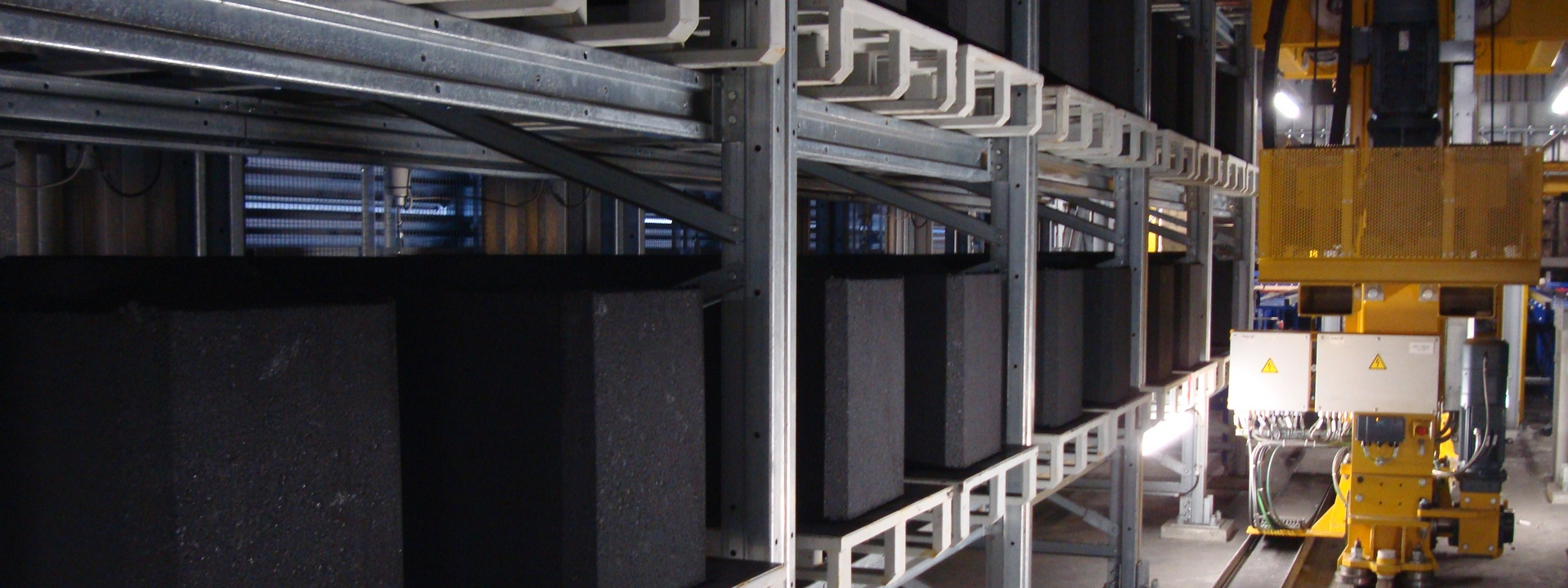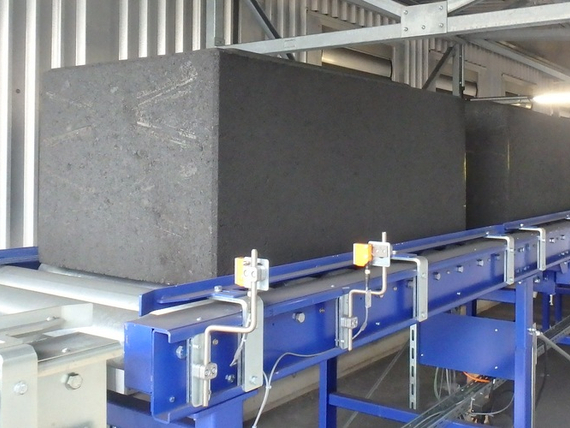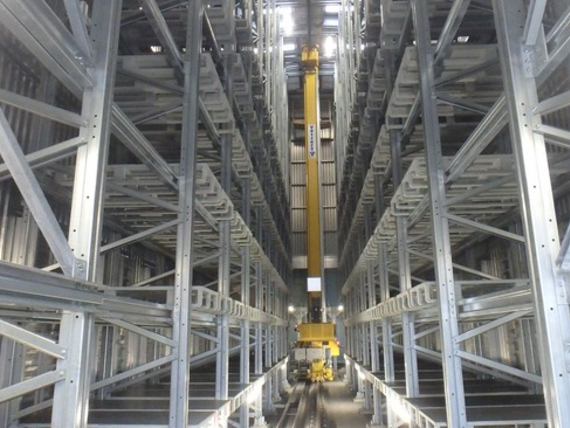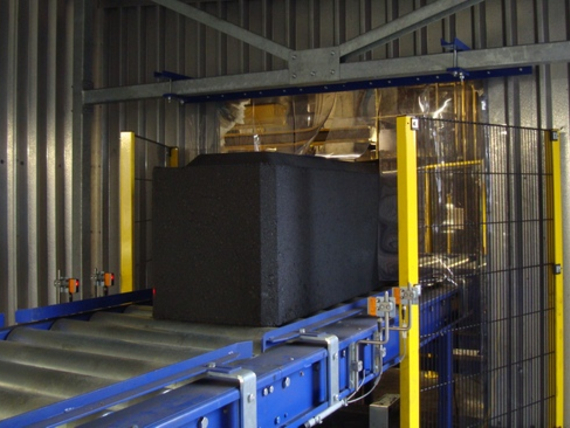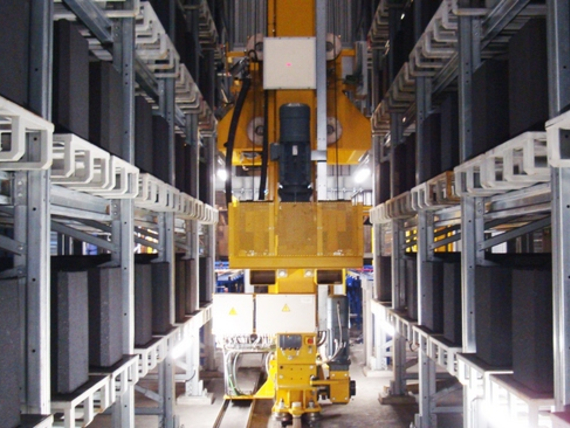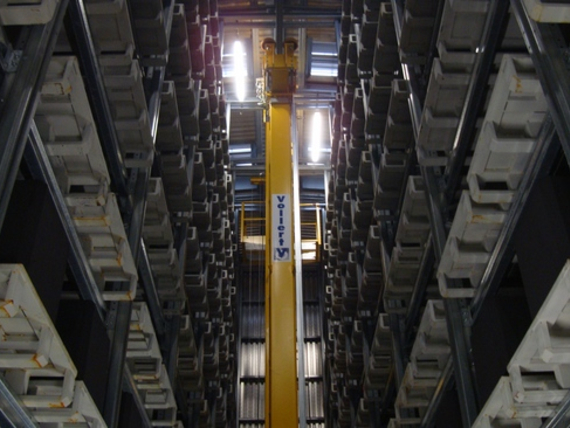In the aluminum smelter in Hamburg TRIMET has been producing there again in full capacity with around 340 employees and 270 electrolytic furnaces up to 133,000 tons of primar aluminium. Accordingly the anode factory produces on-site the anode necessary for the electrolytic process, with which the efficiency of the production is constantly improved. Thus, for example, with the modernization of the anode baking furnace in 2012, the annual production increases to 120,000 tons of baked anodes and the specific energy consumption is reduced by 40 percent. However, TRIMET was not content with that. In the next step, the cooling of green anodes after the moulding process should be optimized. With the conventional techniques, the anodes would be cooled with spraying water and air. The disadvantage: Besides the sensitivity to thermal shock of the anodes, the high water consumption, and the regular costs for the cooling water circuit, the hot core heats up after cooling with sprayed water due to the low thermal conductivity of the anodes. As a result, the surface becomes hot and unstable again, which at temperatures above 110 °C regularly causes damages of the anodes during transportation and storage. The internal damage of the anodes, which can not be recognized externally, has disadvantages in the course of the electrolysis process.
New approach for more efficiency
Thus a completely new high-storage system was designed and built in cooperation with Vollert for this specific demand - on the basis of and substantiated by a study of the Swiss firm R&D Carbon. In close dialogue with TRIMET, they carried out a feasibility study on the idea developed in Hamburg and came to the conclusion that air cooling is significantly superior to other techniques such as cooling with spray water or with immersion in water in terms of investment and operating costs. Automated transportation technology prevents at the same time transportation damages and accordingly reduces the waste of green anodes. The new plant is based on these results: "On one hand, the cooling process is conducted carefully via natural ventilation with ambient air, with which the cost-intensive and accident-prone cooling process with sprayed water ceases to be in use. On the other hand, the conveyor technology has been completely automated to reduce to a minimum the manual forklift transportation and the related risk of damaging the sensitive anodes," explains Andreas Pyzalski, the on-site project manager from Vollert. During the cooling process, the forklift transportation is completely eliminated because the anodes are transferred directly from the moulding station to a new high-bay warehouse without interim storage.
Operating principle: Hot air instead of cool water
The cooling of anodes in a high-bay warehouse is based on natural convection. It will be managed through openings in the façade and the roof creating a controlled and uniform ventilation of the entire high-bay warehouse. Active ventilation systems and a cooling circuit are not required. Vollert has had years of experience in this technology and undertook as a general contractor the construction of the entire plant, including the planning and control technology. For the Chinese Zhongwang Group and the aluminum manufacturer Henan Zhongfu, the experts from South Germany have already developed various cooling high-bay warehouses for several thousand aluminum coils up to 35 tons in weight and 350 °C in temperature. "At first glance, the anodes of around 140 °C in temperature at TRIMET are relatively simple to handle compared to that. However, they are sensitive in a heated state. As a consequence, our conveyor technology must have the necessary gentle touch during transportation," explains Andreas Pyzalski. The 25 m long, 6 m wide, and 13 m high high-bay warehouse reduces in addition the required storage area. Overall, there are 336 anodes weighing 1.2 tons each on ten levels. They are individually stored on metal pallets by a fully automatic storage and retrieval machine - around 35 anodes per hour. Transporting with pallets additionally prevents the deformation of the underside of the anodes. The cooling process completes after approx. 10 hours.
Since December 2016 the new plant for cooling anodes in Hamburg has proven itself with ongoing operation. All original assumptions and expectations of TRIMET have been vindicated: The new air cooling technique and the automated conveyor technology lower the investment and operating costs, reduce rejection rates, and offer higher process reliability and quality assurance. "An all-around success, which certainly leads the way for anode production in the future," underlines Andreas Pyzalski.

